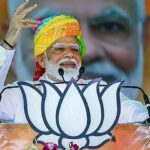Shorter, more efficient therapy for multidrug-resistant tuberculosis is approved by the health ministry
The 75,000 drug-resistant tuberculosis patients in India can now benefit from this shortened treatment plan.
Under its National TB Elimination Program (NTEP), the Union Health Ministry has approved the shorter, less toxic, and more successful treatment regimen—BPaLM—for multi-drug-resistant tuberculosis (MDR-TB).
Unlike the previous regimen that lasted 20 months, the BPaLM regimen, a revolutionary treatment for MDR-TB, has a treatment period of six months. This regimen consists of Bedaquiline, Linezolid, and a novel anti-TB medication called Pretomanid (with or without doxifloxacin).
Previously, the Central Drugs Standard Control Organization (CDSCO) granted a license and allowed the use of protomanid in India.
It has been demonstrated that the four-drug BPaLM regimen is a safer, more efficient, and quicker treatment alternative for MDR-TB than the prior protocol.

The health ministry released a statement saying, “The BPaLM regimen can cure the drug-resistant TB in just six months with high treatment success rate, while traditional MDR-TB treatments can last up to 20 months with severe side effects.”
The 75,000 drug-resistant tuberculosis patients in India can now benefit from this shortened treatment plan. In addition to the other benefits, there will be a total cost savings.
“This new TB treatment regimen was validated by the Department of Health and Family Welfare, in collaboration with the Department of Health Research. The evidence was thoroughly reviewed by subject matter experts in the country.
” According to the official announcement, the health department has also had an evaluation completed to guarantee that this MDR-TB treatment option is both affordable and safe.
Officials from the health ministry predict that this action will greatly increase the nation’s efforts to meet the Sustainable Development Goals (SDGs) of abolishing tuberculosis (TB) by 2025, five years ahead of schedule.
The central TB division under the health ministry
working with the states and Union Territories to establish a time-bound, nationwide rollout plan for the BPaLM regimen.
This plan involves strict capacity building for healthcare providers to ensure the safe administration of the new regimen.
A top official from the central TB division, who wished to remain anonymous, stated, “It is going to boost the TB control programme in a big way and is going to be a real shot in the arm in our mission to end TB in India.”

Five years ahead of the Sustainable Development Goals, by 2025, the National Tuberculosis Elimination Programme (NTEP), formerly known as the Revised National Tuberculosis Control Programme (RNTCP), seeks to strategically eliminate the burden of tuberculosis in India.
Prime Minister Narendra Modi initially stated this objective in March 2018 at the Delhi End TB Summit. To highlight the government of India’s goal of eradicating tuberculosis in the country by 2025, the RNTCP was renamed the National TB Elimination Program (NTEP) in 2020.
It is in charge of implementing, in conjunction with the States and UTs, the Government of India’s five-year National Strategic Plans for TB elimination, reaching nearly a billion people in 632 districts/reporting units.
To reach the goal, the National Strategic Plan for TB Elimination was introduced.
With 7,767 quick molecular testing facilities and 87 culture and drug susceptibility testing laboratories dispersed around the nation, India has the largest network of TB laboratories in the world. This extensive network of laboratories will help with the prompt identification of MDR-TB and the start of TB treatment.
The Department of Health & Family Welfare, in collaboration with the Department of Health Research, oversaw the validation of this novel tuberculosis treatment regimen, which underwent a comprehensive evaluation of available evidence by national subject matter experts.
To make sure that this MDR-TB treatment option is both safe and affordable, the Department of Health & Family Welfare has also had a Health Technology Assessment completed by the Department of Health Research.








